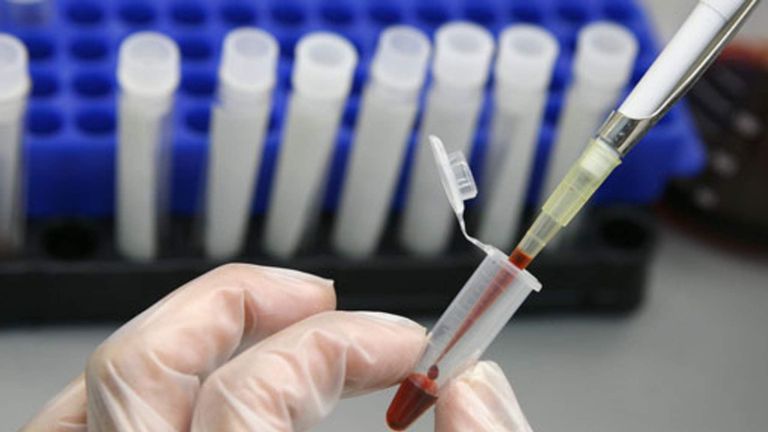Autism test could allow for earlier diagnosis and treatment in children
A study finds a link between autism spectrum disorders and damage to proteins in blood plasma.
Monday 19 February 2018 04:28, UK
Scientists have developed a new blood and urine test that can detect autism in children allowing them to receive appropriate treatment earlier in their lives.
Researchers at the University of Warwick said the test could lead to an earlier diagnosis of autism spectrum disorders (ASD) in children.
ASDs mainly affect social interaction and communication, with symptoms that include speech disturbances, compulsive behaviour, hyperactivity, anxiety and difficulty adapting to new environments.
Diagnosis can be difficult because there is a wide range of symptoms, particularly at the early stages of development.
One in every 100 people in the UK has ASD, with more boys more likely to be diagnosed than girls, according to estimates.
The research uncovered a link between ASD and damage to proteins in blood plasma.
By examining the protein, children with ASD were found to have higher levels of oxidation marker dityrosine (DT) and certain sugar-modified compounds called advanced glycation end products (AGEs).
Genetic causes are thought to be responsible for around a third of cases, with the remainder believed to be caused by environmental factors, mutations or rare genetic variants.
The scientists worked with collaborators at the University of Bologna in Italy, who recruited 38 children with diagnosed ASD along with a control group of 31 children aged between five and 12.
They found there were chemical differences between the two groups.
The next steps will be repeat studies with further groups to assess if the test can identify ASD at very early stages, indicate how it could develop further and assess if treatment is working.
Dr Naila Rabbani, who led the research at the University of Warwick, said: "Our discovery could lead to earlier diagnosis and intervention. We hope the tests will also reveal new causative factors."
The research has been published in the journal Molecular Autism.



